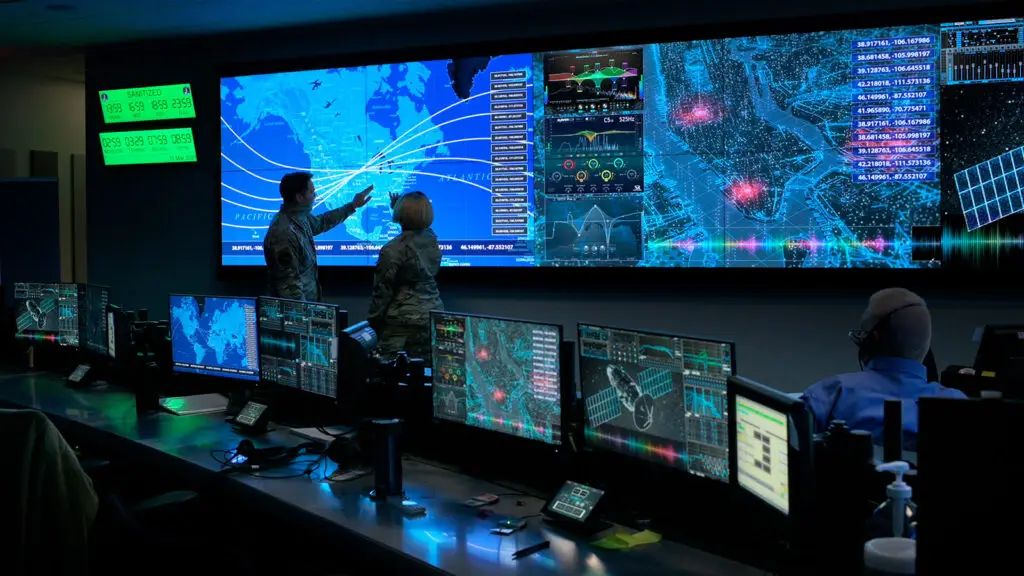Do you dream of working in the exciting and ever-changing field of space systems operations? Have you been wondering how to get started in this complex world of space technology and operations? As someone who has been studying and researching this topic for years, I understand the challenges that come with navigating a new industry.
In this article, we will delve into the ins and outs of space systems operations, from what it actually entails to how to excel in this field. Together, we will explore everything from the basics of space technology and its applications to the skills needed for success in this role. Whether you’re a curious beginner or someone looking to advance your career in space systems operations, this guide is tailored just for you. So let’s blast off and discover all there is to know about mastering space systems operations!
So, space systems operations?
Mastering space systems operations is possible with the right knowledge and resources. This comprehensive guide for beginners provides a thorough understanding of the complex world of space operations. From spacecraft design to launch procedures, satellite communication to orbital mechanics, this guide covers all aspects of operating a successful mission in space.
With advancements in technology and increasing interest in space exploration, there is a growing demand for professionals who are well-versed in space systems operations. This guide serves as an essential tool for those looking to enter this exciting field or enhance their existing skills.
Through detailed explanations and practical examples, readers will gain a solid foundation in key concepts such as propulsion systems, attitude control, telemetry data analysis, and more. Additionally, the guide delves into crucial topics like risk management and troubleshooting techniques that are vital for ensuring mission success.
Whether you are a student just starting out or an experienced professional seeking to expand your expertise, this guide offers valuable insights that will help you navigate the intricacies of operating spacecrafts effectively. With its user-friendly approach and comprehensive coverage of essential topics, Mastering Space Systems Operations is an indispensable resource for anyone interested in conquering new frontiers beyond Earth’s atmosphere.
Understanding the Basics of Space Systems Operations
Space systems operations involve the intricate dance of technology and human ingenuity that keeps satellites, space probes, and other spacecraft functioning smoothly in the vastness of space. At its core, this field requires a deep understanding of how various components work together. Engineers design the spacecraft with advanced materials and systems to endure harsh conditions like extreme temperatures and radiation. These engineers also create software to control critical functions such as navigation, communication, and power management. It’s a bit like conducting an orchestra; every part must harmonize perfectly for success.
Once launched into orbit or beyond, these systems require constant monitoring from ground stations on Earth. Operators track their health and performance using sophisticated tools that interpret data sent back by the spacecraft. If something goes awry—perhaps a solar storm disrupts communication—the team must quickly diagnose issues to maintain operational integrity. Challenges may include adjusting orbits or managing fuel efficiently so that missions can continue long after they were initially planned.
By combining real-time analysis with proactive decision-making, those involved ensure our exploration yields knowledge while keeping astronauts safe during their journeys into the unknown depths of space.
Exploring Key Technologies in Space Systems Operations
In the fascinating realm of space systems operations, several key technologies play a pivotal role in ensuring missions are successful and safe. One of the most important is satellite communication technology, which allows spacecraft to send and receive data from Earth. This technology not only facilitates real-time updates but also enables scientists to analyze vast amounts of information collected during missions. Imagine watching a live video feed from Mars while experts on Earth discuss their findings! Moreover, advancements in propulsion systems have revolutionized how we navigate through the cosmos. From ion thrusters that provide efficient fuel usage to traditional rocket engines designed for powerful launches, these innovations help spacecraft travel further than ever before.
Another essential aspect is sensors and imaging technologies. These tools gather critical data about distant planets, stars, and other celestial bodies. For example, telescopes equipped with advanced imaging can capture stunning pictures of galaxies millions of light-years away! The use of artificial intelligence (AI) has also made waves in space exploration by analyzing patterns within this colossal dataset quickly and accurately. In addition to gathering information safely, AI algorithms can even predict potential problems that could arise during missions. Overall, these cutting-edge technologies are transforming our understanding of space one mission at a time.
The future holds immense potential as we continue exploring new frontiers beyond our planet!

Read also: space systems operator
Roles and Responsibilities in Space System Operation Management
In the exciting world of space system operation management, each person plays a unique role that contributes to the success of missions far beyond our planet. Imagine a well-rehearsed orchestra, where every musician knows their part perfectly. Similarly, in this field, you have mission managers who coordinate timelines and resources, ensuring everything runs smoothly. Engineers design and maintain the spacecraft while technicians handle day-to-day operations like monitoring systems and troubleshooting issues. Communication specialists are essential too; they relay vital information between teams on Earth and those working in space. Each team member’s responsibility is crucial for achieving extraordinary results.
Moreover, teamwork is at the heart of space operations. A successful launch or satellite deployment demands collective effort from various departments—each with specific tasks yet intertwined with others’. For instance:
- Data Analysts interpret incoming data to monitor performance.
- Safety Officers ensure protocols are followed to prevent accidents.
- Quality Assurance Teams review every component before it goes into orbit.
When everyone collaborates effectively, we not only push boundaries but also pave the way for future explorers venturing into unknown territories among the stars.
Strategies for Efficiently Managing Space System Operations
Managing space system operations can be quite the challenge, but with the right strategies, it becomes more manageable and even enjoyable. First off, one of the key approaches is to prioritize communication among team members. When everyone is on the same page, tasks flow smoothly. Regular briefings help in sharing updates and addressing concerns promptly. Additionally, employing project management tools can streamline workflow by allowing teams to track progress visually. This way, critical tasks don’t get lost amidst daily responsibilities.
Another essential strategy involves optimizing resource allocation. Understanding which resources are available—be it time, personnel, or equipment—can make a significant difference in operations efficiency. Consider creating an inventory list that highlights both assets and gaps; this will help in assigning roles effectively based on expertise and availability.
Moreover, scheduling routine evaluations ensures that systems remain functional over time while providing opportunities for improvements based on past experiences.
- Create contingency plans for potential challenges.
- Encourage feedback from all team members.
This inclusive approach fosters a collaborative environment where innovation thrives and leads to improved performance across all space system operations!
You may also like: speech ai app
Case Studies: Success Stories from Effective Space Systems Management
When we look at successful space missions, the stories of effective systems management shine like stars in the night sky. One remarkable example is NASA’s Mars Rover project. The clever planning and teamwork behind this mission allowed scientists to send a robot to another planet, where it explored for years! By carefully managing resources and timelines, engineers ensured that the rover could withstand harsh conditions on Mars. This success showed how critical communication between teams was; everyone had to work together seamlessly to solve problems quickly.
Another inspiring case comes from satellite development, particularly with Earth observation satellites. Organizations like ESA have successfully launched many satellites that help us understand climate change better. These projects are managed by diverse teams who monitor everything from budget constraints to technical challenges. Key aspects include keeping track of schedules and ensuring every component works perfectly before launch. With each successful mission, we learn more about our universe while also gaining insights into improving life here on Earth through data collection.
Thanks to these successes, we can see just how vital effective space systems management is in pushing the boundaries of exploration and technology.



